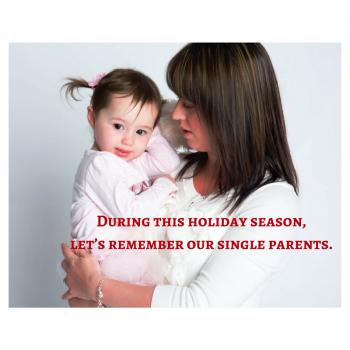
“I want to come home to a home cooked dinner at six every night, one that she fixes and one that I expect one day to have my daughters learn to fix after they become traditional homemakers and family wives.”
This recent statement by Missouri Senator Courtland Sykes is a perfect description of the romanticized idea of the homemaker that many Complementarians in the Christian world are working toward in American culture.
But the Complementarian model of marriages and the way in which many church institutions are designed to leave women out of leadership stems back to something far bigger than either piece of the puzzle: misogyny.
The literal translation of the word is from mid 17th century: from Greek misos ‘hatred’ + gunē ‘woman.’
But it’s more than just hatred for women. It is an attitude that allows for patriarchy to run our churches, our institutions, our societal norms, and it’s been this way since Columbus stepped foot on the shores indigenous peoples populated here. It’s been this way since matriarchal tribes and societies were considered silly and inferior, and especially since the Leave it to Beaver era of America in which a quiet and obedient wife was more desired than anything else.
Lately so many people are saying, “We didn’t know. We didn’t know we were this way.” I will admit that even in the last year, I have been amazed at the comments I’ve seen and the arguments that have erupted in online conversations about whether we began as a patriarchal, racist society or if we just suddenly find ourselves as one.
Of course, many are in denial of that, as well.
But that is just how far the tentacles of misogyny and patriarchy reach. We cannot see it, and often, it isn’t just men that continue to give power to misogynistic ideals. Both men and women participate in and create systems that are misogynistic. I’ve seen it in recent conversations about women in church leadership. Often, those encouraging young women to quiet their voices and remain obedient to institutions that do not want women in leadership are the women themselves, who have been part of those institutions.
Take, for instance, this interview with evangelical women, who cloak Trump’s sexual past in “grace covers all” comments about salvation.
These are the same women who hold up purity movement, a movement I was heavily involved in during high school. They are the women, who, because they were also trained to think this way, hand a young woman a piece of lingerie and say, “Wear it—for him. It’s your duty.”
It’s the same women who tell us to keep quiet and obey. It’s the same women who themselves would never speak up because it’s not their place, women who can lead as long as its the spaces designated by the men who lord over them.
I grew up in the Southern Baptist Church, and it didn’t occur to me to question the male authorities of the church until I was in college, and really more so in recent years. How could something have been so deeply ingrained in me that I didn’t even realize I needed to have a voice and was being told I couldn’t? And why is it that when I name my own identity as a Potawatomi woman and question male privilege, I get labeled a rebel and threat?
It’s that tentacle of misogyny, and it strangles anything in its way.
The question is, how do we bring this up? I can write a piece about how misogyny has made its way into our churches, families, social environments, but what beyond that? What action can we actually take? What does it look like to decolonize?
The vitriol between us makes me think that it will take nothing short of a civil war, and for those of us who call ourselves Christ followers, what now? How do we practice the ways of peace and stand for what is right?
How do we support women who are gifted to lead, women who are seen as rebellious, a threat to the system? How do we support women of color or indigenous women who want to lead, but are seen as downright treasonous, a threat to America itself?
If you’re a parent, you teach your children the ways of decolonizing. You question systems, you question history books, you take up hard conversations. You step out of the box.
If you’re a writer, you write. You write difficult words with grace and say difficult things and pray that the Jesus of the gospels is present in it.
If you’re a business person, you put people over profit.
If you’re a pastor, you recognize that Jesus, too, was political.
If you’re a protestor, you protest for all people, and you make space to listen to the people on the margins first.
And I promise, you’ll get labeled a progressive, anti-American, liberal, feminist leftist for it. I promise all the labels will come and they will get stuck on you because you resist what America stands for today. Remember, prophets don’t often get to do the fun stuff. Prophets don’t get awards and praise. Prophets get killed and attacked for doing what’s right.
If you don’t want to call it resistance, call it the unveiling. Because when I was a young woman in the conservative evangelical church, I didn’t know I was a product of a misogyinistic, patriarchal institution, and once that veil was lifted, I cannot go back.
We cannot go back.
But we can look back, and we can have honest conversations about what we grew up hearing and being taught, and we can create a new way forward for the church.
And the way forward for the church is for those on the outside, those who have been ignored, beaten down, oppressed, assimilated—for their voices to lead the way.
But first, we have to admit that misogyny is alive and well in the American church. If we cannot begin there, then we do not know ourselves at all.
How capable are we of bringing about authentic change if we don’t have voices from the margins? –Richard Twiss















